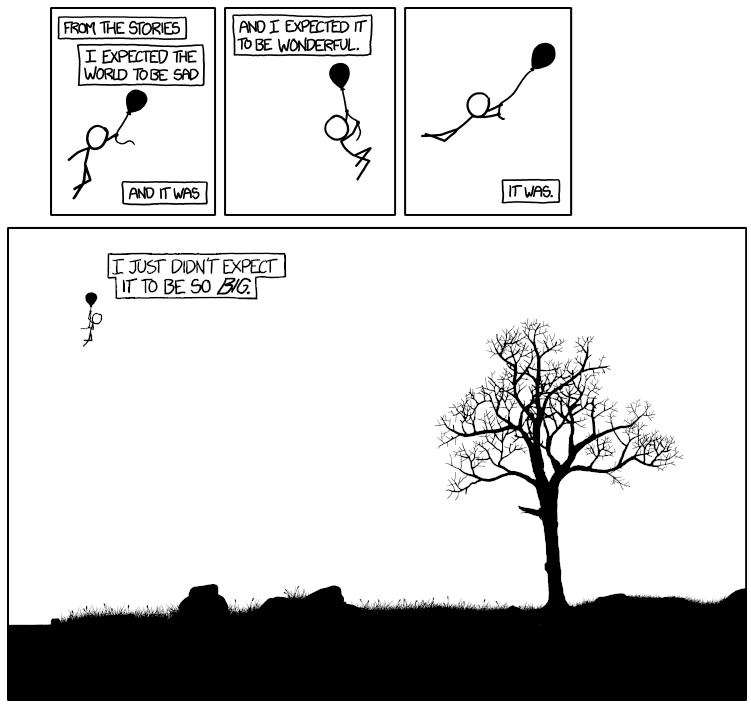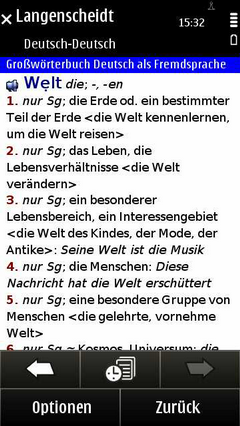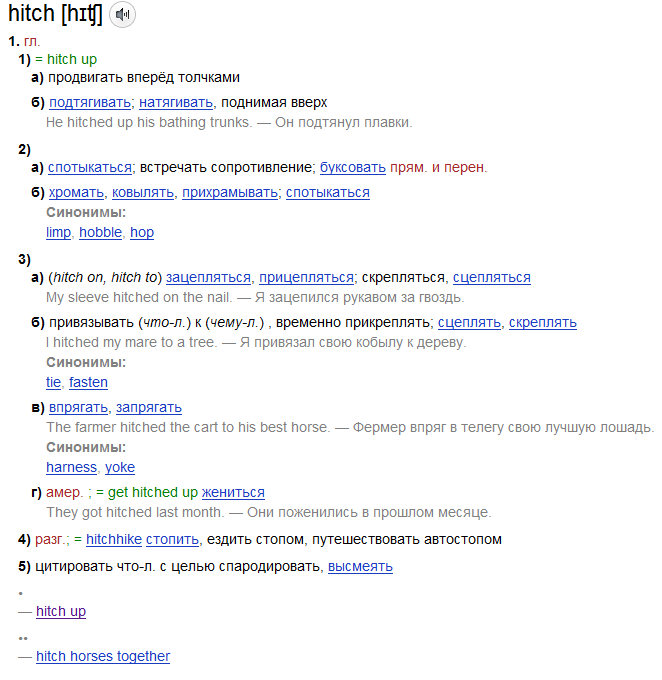Once again about learning languages (part 2)

In the second part of the article (the first, mostly theoretical part, is here ), dedicated to my personal experience of learning foreign languages and advice for beginners, this is not always a simple matter, we will analyze the first stage of language acquisition: it is zero to the level of an advanced tourist who is able to speak basic topics and understand texts in a given language with the help of a dictionary volume.
I am sure that much of what I describe has been written more than once including on Habré: in the end, I did not invent anything new. However, for the sake of completeness, I try to describe everything that I myself use when learning a language in the hope that a detailed description will help interested Habrahabr readers to more accurately reproduce my approach.
"Climb"

As I wrote in the first part, for me an important step in learning a language is to achieve a level where I can read text in this language using only a dictionary. This level implies the knowledge of most of the grammar of the language, at least at the level of recognition, so that on the one hand the context can be determined correctly (time of the verb, its type and voice if there is a language, degree of comparison of the adjective, case, etc.), and on the other hand, to be able to bring a word that you do not know to the dictionary form so that it can be found in the dictionary.
It is very important to reach the level of recognition of grammatical elements as quickly as possible. That is, if you understand, for example, that some unknown word is most likely a verb in the future tense, it will often be enough to build an infinitive form (which is often a dictionary) and find it. At the courses, often at the beginning, a great deal of time is devoted to the study of all forms of irregular verbs in all possible tenses and forms, often to the level of independent reproduction. Although it is certainly very useful, in my opinion at the very beginning there is no need to waste much time on it: irregular verbs most often signify the most frequently used concepts in the language, therefore you will meet them at every step when diving into the language and after 5 6 times remember for a long time.
For the “recruitment” of the proper “height”, for example, in German, at first I carefully flipped through a rather detailed and thick grammar under the authorship of Professor Tagil. This is a rather difficult book to learn, but I didn’t set myself to master it: I just wanted to get an overview of all that is in the grammar of the German language.
After scrolling - just scrolling, not reading - which took me probably two or three evenings for 2-3 hours, I could almost imagine from which parts German grammar was composed, what kind of language are there (for example, Komposita, which (practically) not in English) and so on.
At the second stage, I took the grammar of Ilya Frank “with a human face”, which is much lighter and adapted for a wide range of readers. This is a very good practical grammar that also describes the whole language, but from a practical point of view (as opposed to the academic grammar of Tagil). With the exception of a few unsuccessful examples (with small errors in the use of articles), this book is a very reliable and good source for learning German, unlike most of the topics published in the Russian Federation and other things where texts contain simply a catastrophic amount of terrible mistakes. I spent a total of two or three weeks on it, reading it mostly in the subway.
After these two grammars, I had a more or less holistic picture of how the German language functions. Of course, I had very little practice and had no use skills at all, but I could already begin to actively expand my lexical and grammatical reserve without fear that I would need to train further for the kind of words learned or some new verb forms.
An alternative method of "climb" can be the use of various online resources, which presents educational information of various kinds: texts, exercises, quizzes. Such resources are well suited to those who work at a computer all day and who can visit these resources during a break in their main work. However, I must note that such resources can very easily take more time than originally planned and adversely affect the work - at least I notice this in myself.
"Planning in streams of language"

Once we have reached the required height, having mastered the basic grammar and having made up a more or less holistic view of the language, it is necessary to begin actively “to float in the streams of the language,” that is, try to contact the language in as many spheres as possible.
Step 1: Interfaces and games.

To begin with, I change the interface language wherever possible to the target language. That is, everywhere: from the smartphone, ending with the language in Google search and mail, the standard browser language, the language of the operating system and the office. Of course, you shouldn’t do it all at once, and not every change is easy to implement: if you change the language on the phone or in the Google Mail, anyone can read (Habra), changing the main language in the browser may require more privileges than the user has the system. Changing the interface language of the system and office suites may be simply impossible or associated with significant additional costs. Therefore, you need to approach wisely and change the language where it is simple and not so troublesome.
At the same time, I do not recommend making such changes on Sunday evening, especially if the next day you need to make a lot of important phone calls, add important meetings and so on. If you change the interface on the phone, then stock up at least an hour and a half in order to at least skim through all the options that you need: a call, an alarm clock, contacts, meetings, and so on. In the case of a phone, such a need is rather rare, but in the case of mail and operating system interfaces, it’s really the first time you have to look into the dictionary even for the sake of seemingly very simple and ordinary words. Nothing, this stage usually passes very quickly and by the third or fourth day of use a certain automatism is already achieved.
The use of a new language in all working interfaces can sometimes lead to unexpected effects. So, for example, soon after I transferred my GMail account completely to Spanish, Google entered two-level user authentication and, when I tried to login, started calling me on the phone number specified in the profile and trying to dictate six-digit numbers to me in Spanish . Considering that just then I had to urgently go to the post office and read an important letter, I quickly mastered Spanish numerals from zero to nine.
I also like to start playing computer games quite early, where knowledge of the language is necessary for a successful game. So I loved to play Age of Empires and Civilization III in German while I was learning this language. Many console games, such as Civilization for Xbox 360, Trivial Pursuit are already sold with localization into many languages and the language is automatically selected from the current language of the console. Other games, especially where there is a lot of voice acting, have to be bought separately: this is how I bought French versions of Fallout, Mass Effect, Bioschock, and a number of other games. Their cost usually does not differ from the English version, and all the games that I have acquired so far always have titles for easier understanding (see below about titles).
')
Step 2: Domestic language.
From a practical point of view, vocabulary learning begins with everyday words, which are most often needed for medium-static people to communicate (that is, mastering the same Scientific English as part of postgraduate studies, of course, has other priorities and we have not yet considered such cases) . I often read about the council to glue small self-adhesive pieces of paper onto all the objects in the house, after having written down on the pieces of paper the name of these items in the language being studied. Yes, this is of course practical advice, but it lasts exactly a week: in a week, even if you live in a five-room apartment, it will be almost impossible to find an object to which you did not try to glue a piece of paper, and even the words are more or less deposited and you want move on.
Since I already lived in Germany during this stage of learning German, it was relatively easy for me to get advertisements for various retail chains like Aldi, LIDL, Penny, Netto, Plus, Domäne and so on. For language learners outside the environment, I can advise the sites of these stores (just search by name) - they all have either interactive brochures or allow you to download the current brochure as a PDF. Here is how the page in the typical prospect looks like:

As you can see, there is practically no grammar (except for the coordination of adjectives with nouns in gender and number). But a lot of necessary and useful vocabulary, which I usually cut straight from the prospectus and pasted on similar objects at home, or on the place where they could be. Thus, I kind of “updated” the bathroom once a week and the living room (I never had it again) with new objects and words.
Step 3: Read at the beginning.
As my experience in learning German and Spanish shows, reading the original texts immediately after a quick grammar is quite difficult, yet the fact that the grammar was mastered at a canter also affects the original texts, which are usually full of all subjunctive and conditional voices, learn the wrong verb in this form. To start moving forward with reading, there are two ways:
The first path :. Books adapted for reading by the method of Ilya Frank. In these books, after each phrase, its translation is given, sometimes with an explanation and even with transcription (if necessary). Adaptations differ from work to work and can be of different levels: from the very initial level, where almost every word is explained (for German, this is Erich Kästner, “Emil und die Detektive”), to an average level, where only the really not very often used ones are explained. words (for German this is “Das doppelte Lotchen” by the same author). Here is an example of an English text adapted in this way:

The adapted text is interspersed with the unadapted one and the main idea is that when reading a paragraph of text for the first time we are guided by these hints and they remain in RAM, thus reading the same paragraph for the second time we already understand it 100% without a dictionary. In general, this is a rather interesting method that allows you to actually read the book in the original and get a good impression about the language. However, he does not contribute much to memorizing individual words.
The site of Ilya Frank has a large selection of books for English learners. I already mentioned the books for the German language above, and for learning Spanish the first book I would advise is “Spanish fairy tales”, and the second one is “Commissioner Plinho”.
Second path: Books with parallel translation. Such books are quite widespread in Germany, for example, where in a more or less large bookstore they fill up whole shelves in different languages. It publishes (in Germany, at least) such books by the rororo publishing house, and in these books the original text is usually on the left and on the right is its literary translation. And, which is very disappointing, the coordination of the original and the translation is carried out not by paragraphs, but by larger sections: sometimes at the top of the page, but more often by chapters or individual works (as often short works, like stories or fairy tales, are often published). On the site of Ilya Frank, you can find a number of books where the original and the translation are in the archive. This is not as convenient as a finished book, but you do not need to buy anything - you can print the necessary piece from both files yourself and read at your leisure.
The third way: Adapted for reading small stories and stories, where usually along with the stories are given basic exercises on grammar and vocabulary. This type of literature is very common in Germany under the name Lernkrimi ("educational detective"). Recently, they began to be published in Russia. This kind of reading is designed mainly for adolescents learning a language in school and may not be the most interesting or optimal reading - it all depends on the book and on the degree of its adaptation.
Step 4: Work with the dictionary.
With a certain persistence in mastering the language in about three months of medium intensity classes (an hour, maximum a day and a half, 3-4 times a week), you can reach a level where only a dictionary will be needed to read the original, unadapted texts in the language. Some rare grammatical forms may still require consultation of the grammar, but they will practically not interfere with the understanding of the text and often their meaning is clear from the context.
At this stage it is important to choose the right dictionary and literature for reading. With literature, everything is more or less simple: most of us have, for sure, a favorite writer who writes in an original language not studied, and for well-known writers it usually does not present any difficulty in finding the original work on the web. In the extreme case, you can read foreign translations of famous authors: for example, I find very good translations of Stanislav Lem into English.
Choosing a dictionary is more complicated. Very often you can hear the advice that when learning a language, you should try to use monolingual (explanatory) dictionaries, not bilingual dictionaries, because in this way you immediately immerse yourself in the language. From my experience I can say that the use of monolingual dictionaries helps only by the fact that there are often given examples of the use of expressions and words that are often used together with a given word, as well as synonyms and antonyms. However, unlike bilingual dictionaries, the explanation of the meaning of a word in a foreign language does not have the same expressive power as its translation: sometimes perfectly understanding from the description what the word means in a particular context, we find it difficult to translate it into our native language, although an exact translation exists: the word somehow escapes from our consciousness, “turns on the tongue”.
That is why, when reading, for example, English texts, I try to use bilingual dictionaries: having once read the translation of a word, I have three to five times more chances to remember this word than if I read its definition. In this regard, I really like the standard Lingvo dictionary, in which for each word there are given (if possible) several groups of meanings and examples are given. For example, how is the word that I recently met - to hitch, interpreted there?

This verb, as can be seen from the translation, has quite a lot of meanings. In the text where he met me, it was 3a. However, I carefully study each of the meanings and try to imagine a situation where I could use this expression. This is where the examples provided by Lingvo help a lot. For example, reading the first value, I immediately imagine how I say “Pull up swimming trunks!” (Hitch up your bathing trunks!) To my boss at work (he has recently been trying to speak with everyone in English, now let him get it!). Presenting that I will tell him the next time I will be two hours late, I pronounce the second phrase - “I’ve left”. And so on.
Usually, after the first time, the word is not remembered, but when you meet this word for the second time, you quickly recall examples. For the third or fourth time, the word is already recognized in the context and somewhere from the seventh or the eighth, if everything is good, the word even falls into the active dictionary - that is, it comes to mind in the right context.
"Developing language skills"
Only after having mastered the basic grammar (in my understanding, this is the entire grammar of the language at the level of recognition of grammatical structures), does it make sense to move on to developing skills in using the language. These skills include language listening and speaking.
Both of these processes require (especially at first) quite significant stress, and in my opinion, listening comprehension requires more tension than speaking, because you have to adapt your hearing to the motor model of a foreign language, as well as to the usually quite high speech rate of its speakers.
Listening, step one - Songs.
The easiest way to begin to understand simple lyrics is to listen to the “inner” repetition of songs in this language. Virtually any song can now easily find words on the Internet and for mass-studied languages, as a rule, there is no problem to choose a genre and artist to your liking. For example, I really love all sorts of musicals ("Ivita", "Romeo and Juliet", "Jesus Christ is a superstar") and to find them, even with words, is not a problem on YouTube.
Listening, step two - Games and movies with captions.
Here, too, I think everything is clear. Titles also train the speed of perception of the text - they are usually shown for a very short time and during this time they should be able to read and understand, while following the plot. Initially, this is very difficult and therefore I use programs like PowerDVD, which can show captions for two languages at the same time: in the upper part of the screen I allow captions in English (they are in 100% of cases), in the lower part - in the language being studied.
Listening, step three - Linguaphone courses and audiobooks.
For the development of listening skills, special language courses are issued. Such courses, for example, from the London Language Institute, can be found for many languages (I have seen them for English, German and Spanish). These courses, as a rule, contain texts composed and slandered by native speakers of different ages and social status (from a teenager-schoolboy to a pensioner), of the same scope and topics discussed. The course can be used either just like that (at an advanced stage), or with the help of attached textbooks (at the initial stage of mastering a listening technique). The main task here is to learn how to understand these texts 100% from the second to the third time.
In the case of audiobooks, to achieve 100% understanding after the first listening is almost impossible: even in languages that I speak very well, I come across words that I either do not immediately understand, or do not know at all. Here, however, the task is not to understand 100%; rather, it is important to learn how to hear all sounds as possible, what the native speaker utters and, if possible, suggest writing a misunderstood or unfamiliar word.
The practice of speaking, the first step - memorizing speech patterns.
At the very beginning of mastering such a skill as speaking in a foreign language, there is no place to go from purely mechanical learning of speech patterns and typical answers. Most phrasebooks contain the right set of phrases and expressions, from which it is quite possible to learn by heart a few dozen as the main stock. It makes sense to learn only those phrases that you yourself understand 100% in terms of grammar and vocabulary. Here it is important to try to learn to speak these phrases in roughly the same tone and pace as native speakers speak. The most difficult thing here is exactly the melody of the language: the rise and fall of the voice, logical stress and pauses, which can differ greatly from language to language. The skill to hear and repeat a phrase in another language is usually better and easier to develop for those. Who has a good ear for music and / or music education.
The practice of speaking, the second step - talking to yourself.
Often, the most difficult problem in speaking in a foreign language is psychological problems: the fear of making a mistake, the fear that native speakers will hear your mistake. This fear is especially pronounced in the process of communication with native speakers, when you seem to know everything and are confident in grammar - but anyway because of fear you cannot connect more than two words together.
At this stage, talking with yourself is helpful. They can be used as an excellent means to fall asleep: in my experience, as soon as I try to maintain an internal dialogue with myself in bed, after a maximum of 10 minutes, sleep cuts me off.
Conversations can be conducted on absolutely any topic, ranging from the weather and ending with how you ask your boss for a pay raise. Experiment with themes and imaginary interlocutors. If you do not have enough words, try to do without them, and the next day try to look at them in the dictionary. The fact that you remember which words you didn’t know the next day and their active search in the dictionary, as well as the search for their equivalents when talking to yourself, will help you to remember this word more easily, and even if you forget it, you will already have it tested. way of explaining this concept to the interlocutor.
In the framework of "self-talk" it is useful to play in my head those real conversations that took place during the day, try to translate them into a new channel. If somewhere you could not correctly answer or express what you wanted - try to do it now and stock this experience the next time.
Here are some more tips for those who are just starting to master a fluent speech in a foreign language:
- Keep it simple. First, learn to respond with two-three-syllable sentences. Believe me: with three words you can express almost everything.
- If possible, use simple times and pledges. If you want to use a passive voice, then think about the possibility of rebuilding the sentence into a simpler form.
- Do not try to immediately master the perfect pronunciation - it is very difficult and is given only to a few. But try as much as possible to transmit the sounds and melody of the language - as you hear and understand them. Over time, and the experience of communication will come and a more complete understanding of the motility of the language and pronunciation in itself will improve.
- When communicating in a company of native speakers, listen carefully and observe how they answer everyday questions. If possible, try to add a couple of such expressions to your personal piggy bank.
- Choose yourself some popular sitcom with short series (15-20 minutes ideally) full of everyday conversations. See one series in the target language every one to three days and use the series credits to learn new language and constructions.
Instead of a conclusion.
This ends my second part of the article on language learning. I myself, following these principles, manage to master a new language (or improve the old one) to an average tourist level in six months or a year of classes of medium intensity. By average intensity, I understand only independent classes no more than three times a week for an hour, that is, in the aggregate, about three hours a week, plus reading books in public transport on the way to work and home.
Further steps to improve the language require much more intensity, otherwise there is no progress at all and always stand in one place. For the process of qualitative transition to a new level, you must really get used to the language. We will talk about this next time.
UPD: Added information about online resources.
Source: https://habr.com/ru/post/155721/
All Articles